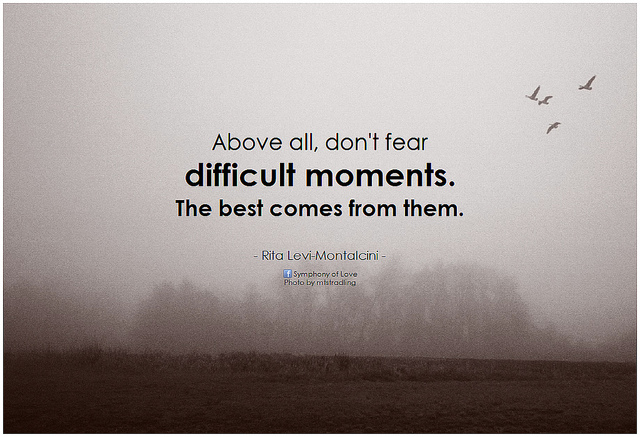5 Ways to Beat the “Sunday Night Scaries” and Be Happier at Work

Do you experience the “Sunday night scaries,” dreading the thought of Monday morning? Or hit snooze on your alarm so many times you lose count because you don’t want to get out of bed and go to work?
Overwhelmed, overstretched, and just over it, you find yourself caught in a vicious cycle of work sucks.
It’s time for an intervention.
Here are five things you can do to be happier at work. Or at least less grumpy!
Procrastinate.
Why? Procrastination helps you cull your to do list. How often have you looked at your to do list and seen for the hundredth time a task or project that has been there for weeks or months? Your procrastination around this item is informative.
So, when procrastination strikes ask:
How important is this task or project?
- Will it enable you to achieve a goal?
- Will it help you realize a strategic priority?
- Does it drive revenue?
- Does it require your unique skills, experiences and talents?
If the answer is no, remove it from your task list guilt free.
Welcome procrastination and use it to reengage with your work.

Do hard work.
The overwhelming project, the promotion that would require you to learn a new market segment or the opportunity to transfer to your firm’s London office all require hard work. And, hard work is typically fraught anxiety and stress, not happiness.
However, it is in the hard work, or what I call challenging or stretch opportunities, that we most often experience flow. Flow is the optimal state between too much stress and boredom. Dr. Martin Seligman, a psychologist, asserts that the flow state is one of the three main drivers of human happiness. When it gets too easy or too comfortable, you’re probably not in the flow.
Ask yourself:
- What aspects of your work are too easy?
- Where have you become too comfortable in your role?
- How can you challenge yourself and create an opportunity to learn and grow?
Do hard work as way to find your flow and your happiness.
Develop routines.
Conventional thinking says that routines are boring. So, how can something boring make you happier? Well, it’s not the routine tasks that make you happier, it is the time you gain when you routinize your tasks. Time you can spend on professional projects that energize and excite you, or with family and friends or pursing personal interests.
When you develop routines for the tasks you do the most frequently, they embed in your brain and create a pattern. As a result, you spend less time and attention on those tasks.
Consider routinizing the following tasks:
- Email correspondence
- Check email on a schedule. For example, morning, mid-morning, after lunch, afternoon and the end of the day.
- Use templates and signatures to standardize your responses.
- Wardrobe and meal choices
- For example, when Barack Obama was President, he limited his wardrobe options and had pre-set menu options. This enabled him to use his time and energy on higher-value decisions.
Develop routines and use the time to reinvest in your work and life.

Ask for feedback.
Asking for feedback is hard. It doesn’t matter how much experience you have, your position in the company, nor how skilled you are. It’s scary. We all sweat when we solicit and receive feedback. However, real-time, specific feedback is one of the most powerful methods you have to create more positive, affirmative, successful work experiences.
To reduce and eliminate feedback anxiety, use my S.E.E. feedback strategy.
- Be specific. Ask for the specific type of feedback that you want to receive.
- Share an example. Provide an example of the type of feedback you want to receive.
- Explain. Ask the person you requested feedback from to explain what you did or did not do.
Feedback is a powerful way change your behavior and optimize your performance. When you feel capable, confident, and valued, you are happier at work.
Ask for feedback use it to energize your work day.
Take breaks!
Grind it out. Just get it done. Put your head down and execute. You and I both know this is the recipe for misery.
However, we are reluctant to work differently, even if it would make us happier. Why? Because we might be viewed as not committed or lazy.
The opposite is true. If you want to produce valuable ideas, accomplish your goals and be happier at work, it’s time to start taking breaks throughout your workday.
A break is time where you release your mind to leisure and you free yourself from your professional demands.
TRANSLATION: a break is not checking your email. It’s fun, unrelated to work and allows your brain to rest.
- Take multiple, short breaks – 5 minutes – throughout your workday.
How? When you plan your day, alongside your list of tasks to complete and meetings to attend, list the breaks you will take.
- To maximize your break, get moving.
Walk up and down the stairs in your apartment building or walk around the block.
Ask a co-worker to be your “break buddy” for additional accountability. Set times to take your break virtually together.
Take a break and watch your motivation, concentration and creativity soar.
The next time the “Sunday night scaries” strike as you dread the thought of another week of work, decide to procrastinate, do the hard work, develop a routine, ask for feedback or take a break on Monday, because your happiness is waiting.
This guest post was authored by Carson Tate
Carson is the founder and managing partner of Working Simply, Inc., a business consulting firm that partners with organizations, business leaders, and employees to enhance workplace productivity, foster employee engagement, and build personal and professional legacies. She is the author of Own It. Love It. Make It Work: How To Make Any Job Your Dream Job.


